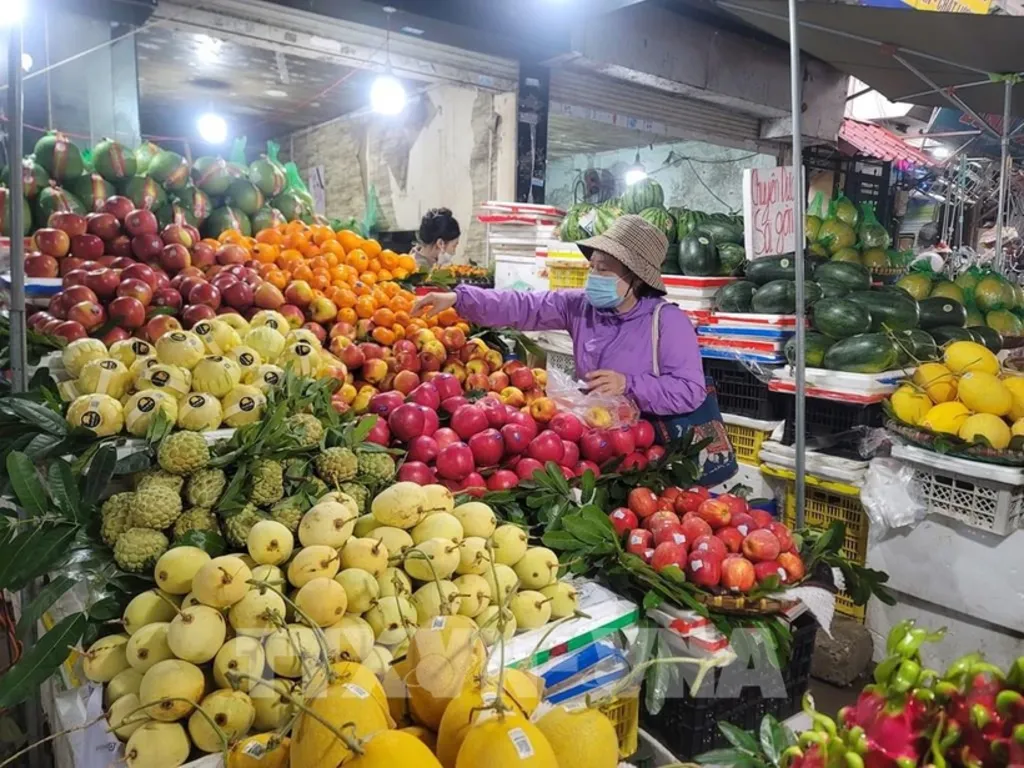 |
| Domestic market prices are basically stable in the first five months of 2024, according to the Ministry of Finance__Photo: VNA |
The Ministry of Finance (MoF) said on June 5 that in the first five months of 2024, domestic market prices were basically stable, with market developments in line with the price management scenario set by the Prime Minister’s Steering Committee for Price Management.
In May alone, the prices of some products tended to increase compared to the previous month such as pork prices due to the impact of African swine fever spreading in some localities, affecting the supply. Greater demand in the international market has also resulted in higher rice prices in the southern region. Price of liquefied petroleum gas recorded a slight decrease while petrol prices were adjusted in accordance with fluctuations in the world market.
Regarding petrol and oil prices, the MoF said it has coordinated with the Ministry of Industry and Trade to closely monitor developments in the world market to manage domestic petrol prices in line with the market trend. Since the beginning of this year, petrol prices have undergone 20 adjustments, with eleven up and nine down while prices of diesel (DO) and kerosene have decreased 10 times and increased 10 times.
As for educational services, late December last year, the Government issued a decree on adjusting the tuition roadmap. Accordingly, tuition for the 2023 - 2024 school year has been kept unchanged for preschool education and general education, as compared with the previous school year.
According to the MoF, the State exercised cautious management of prices of key commodities in the first months of the year to create safe room for inflation control throughout the year. In the following months, price management will be implemented flexibly in line with the consumer price index’s developments and petrol prices will be adjusted in accordance with global price.
The management agency will promptly issue support policies on exemption, reduction, and extension of taxes, fees, charges, and land use fees to help ease pressure on prices, reduce lending interest rates, stabilize the foreign exchange market as well as speed up disbursement of public investment capital, along with other macro policies to remove difficulties for businesses and people, the ministry said.- (VNA/VLLF)









